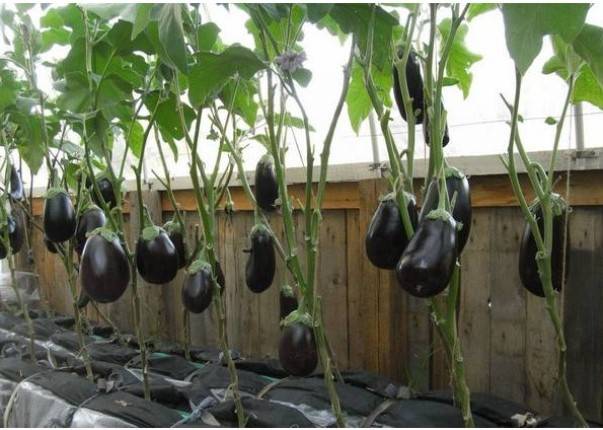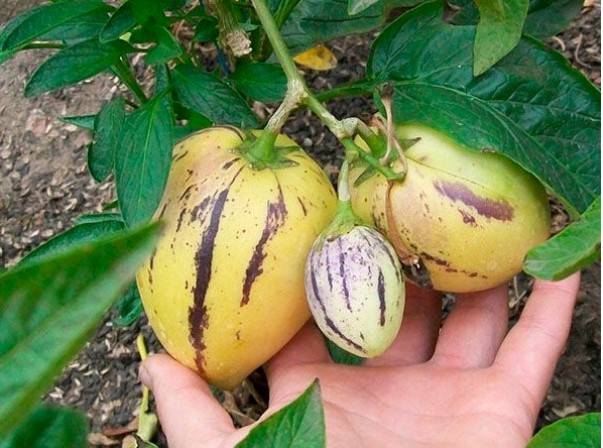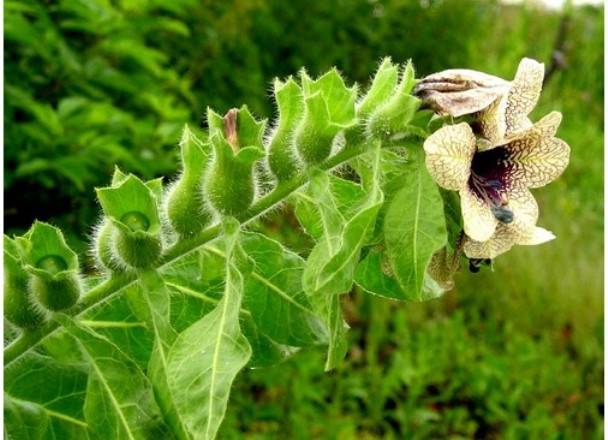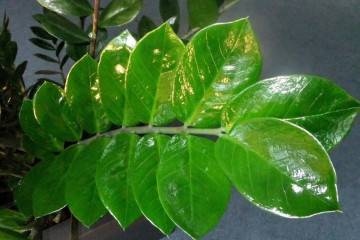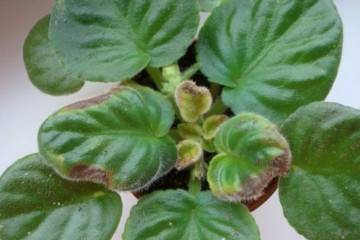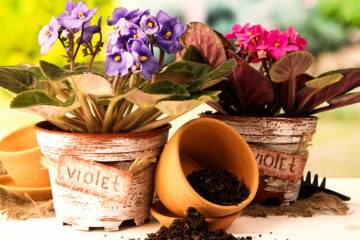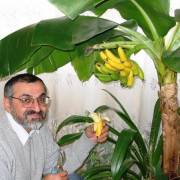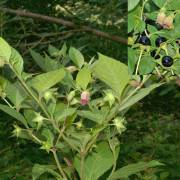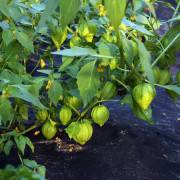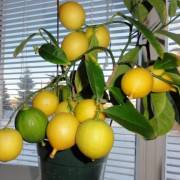Solanaceous vegetables - list of plant names
Content:
Many have heard the word "nightshade", but not everyone wondered what it means. You need to figure out which vegetables belong to the nightshade.
Solanaceous vegetables: a list of plant names
In the agriculture of all countries there are vegetables of the Solanaceae family, the list of them has more than 2500 species. Many grow in temperate climates, but most of the family grows in the tropics of South America. Among the varieties there are vegetable, ornamental crops, medicinal species are widely used.
Potatoes
The second name of the vegetable is tuberous nightshade. The vegetable was brought from Latin America.
The crop is an annual herb with edible tubers.
The fruits contain B vitamins, trace elements, enzymes that support the function of the liver and blood vessels. The product is high in calories, as it contains up to 20% starch. Vegetables should be carefully checked for green flesh before eating.
The crop should be stored in a dark room. With the access of light in the pulp, the percentage of the toxic substance increases.
Eggplant
The purple vegetable is called dark-fruited nightshade; housewives love to harvest it in the summer. A shrub up to 80 cm in height gives an edible fruit, which is a berry and can be round, elongated. The crop is rich in iron, potassium, phosphorus. The pulp has a positive effect on the intestines, restores the salt balance, breaks down fats.
It is not recommended to use overripe fruits, they contain a high content of a poisonous alkaloid.
Tomato
Tomato, or tomato, is grown all over the world, it has gained popularity due to its high taste and useful properties. The fruits are rich in trace elements, acids, amino acids. Substances of the fleshy part of tomatoes reduce blood cholesterol, activate digestion, and accelerate blood renewal.
It is important to remember that oxalic acid in large quantities irritates the walls of the stomach and disrupts the functioning of the kidneys.
Pepper
The plant is grown in greenhouses, there are sweet and bitter varieties. Fruits contain vitamin C, carotene, antioxidants. The vegetable has a strengthening effect, prevents cancer.
The culture contains saponins, which in small doses have a therapeutic effect - diuretic, calming, adaptogenic. When accumulated in the body, it leads to irritation of the mucous membranes.
Physalis
The well-known nightshade vegetables, the list of which is presented above, is complemented by exotic physalis. The vegetable variety is not very common among gardeners. The plant is an annual shrub with a round fruit that looks like a small tomato. The berry is enclosed in a shell in the form of a bright orange heart-shaped box.
Melon pear
A rare vegetable in Russian beds that tastes like melon, pumpkin and cucumber at the same time. The fruits contain a large amount of vitamin C, pectin. A plant from South America can cause diarrhea in large quantities.
Features of vegetables of the Solanaceae family
Solanaceous vegetables contain solanine, which in high doses can lead to health problems in humans and animals.
Pastures of domestic animals are trying to be carried away from the plantings of nightshade vegetables. Potato tops in the diet of cows can harm the health of the animal and worsen the quality of milk.
How Nightshade Affects Health
With excessive consumption of vegetables, the solanine in the pulp of vegetables can be a toxic alkaloid that can lead to the failure of many systems in the body. In moderate consumption, a person will not feel the harmful effects of the substance. When overeating nightshades, indigestion, nausea, and dizziness may occur.
After a long nightshade diet, a person begins to malfunction in the thyroid gland, muscle spasms, and joint pain occur.
What is the danger of Solanaceae
Enzymes and calcium compounds in large quantities can delay the absorption of nutrients in the body. Large doses of solanine taken with food cause diarrhea and cramps. Vegetables contain a large dose of calories, which negatively affects the figure. People on a diet need to limit their consumption of nightshade vegetables.
Effects of steroid alkaloids on the nervous system
An alkaloid in vegetables leads to a slowdown in the reaction of nerve endings. A malfunction of the nervous system causes headache, insomnia, nervousness, depression, and provokes convulsions.
Solanin also contributes to malfunctioning of the thyroid gland, chronic joint pain, leaky gut, and depression.
Allergic reaction and sensitivity to Solanaceae
There are known cases of poisoning by nightshades, this proves how dangerous vegetables can be. People who are sensitive to alkaloids - saponin, nicotine and capsaicin, develop allergic reactions in the form of rash, itching, vomiting, and muscle pain. Such persons need to limit the consumption of potatoes, eggplants, peppers, exclude treatment with drugs based on dope, tobacco.
Other members of the family
The group includes not only vegetables of the Solanaceae family. It contains a variety of herbs and ornamental species.
Medicinal plants of the Solanaceae family
Medicinal herbs contain a high percentage of alkaloids, so they are taken with caution. The substance is allergic and itchy. In folk medicine and as raw materials for tablets, the following types of nightshade plants are known:
- Belladonna grows in the Caucasus and the Crimea, and is used as a remedy to relieve spasms and pain. Belladonna tinctures are used for rubbing with rheumatism;
- black henbane is used for squeezing oil, which treats bruises, abrasions. The extract from the leaves is sent for the manufacture of tablets for insomnia, nausea;
- dope ordinary is used to treat asthma, decoctions are prepared from it to calm the nervous system.The alkaloids that make up the pulp act as blockers of the transmission of nerve impulses. In large doses, the drug has a harmful effect;
- Bittersweet nightshade is used for the preparation of expectorant, diuretic drugs, is part of ointments for the treatment of skin diseases.
All nightshade herbs have a high medicinal value and are useful in pharmaceuticals. Raw materials of wild species are purchased from the population and grown in pharmacy gardens for processing.
Ornamental plants of the Solanaceae family
Petunia is an annual flower popular with gardeners. There are bush, ampelous species with a variety of colors.
Brugmansia is a plant of high aesthetic value. It is a perennial shrub with beautiful white flowers in the form of elongated gramophones. Flowering is short-term, in warm weather it can be repeated. The sap of the plant contains a hallucinogen. In Latin America, the Indians used the leaves of the bush for religious ceremonies.
Ornamental nightshade, or Cuban cherry, is found wild in South America and Australia. In temperate latitudes, it is grown in pots on windowsills. The bush pleases with its compact size and numerous fruits of bright orange color.
Solanaceous crops are used in cooking, medicine, and decorative landscapes. Consuming vegetables in moderation will not harm your health. Adherence to the dosage when taking your nightshade medication will help solve health problems.

